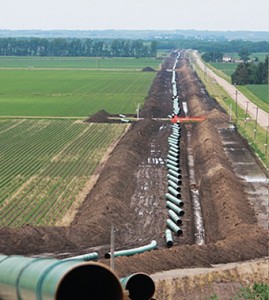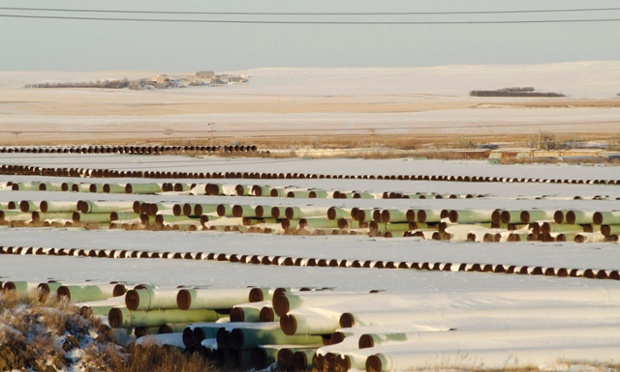 Paris talks but clean energy patents fly, it seems. This Bloomberg feature on the boom and bust of the Bakken oil fields of North Dakota has the look of a high speed news reel that is, maybe, not quite how we imagined it. But once the process shows itself from beginning to end so quickly in this way, you can imagine happening over and over again. The pollution, the waste, the overbuilding, the exodus:
Paris talks but clean energy patents fly, it seems. This Bloomberg feature on the boom and bust of the Bakken oil fields of North Dakota has the look of a high speed news reel that is, maybe, not quite how we imagined it. But once the process shows itself from beginning to end so quickly in this way, you can imagine happening over and over again. The pollution, the waste, the overbuilding, the exodus:
The discovery last decade that fossil fuels could be tapped from deep beneath the windswept prairies of North Dakota acted like a magnet on American working people. By the thousands they came, from as far as Texas and California, fortune-seekers in a modern-day Gold Rush. Together with visionary companies like Continental Resources and industry behemoths ExxonMobil and Norway’s Statoil, they exploited a new technology called fracking — blasting the underground Bakken rock formation with sand and water and slurping up the crude that was hiding there for millennia — to increase oil output in the region 12-fold from 2006 to 2014. The bonanza helped drive the U.S. closer to energy self-sufficiency than it’s been since the 1980s.
The frenzied production exacted a price — oversupply was one reason the U.S. crude price took a nosedive, losing more than half its value from a June 2014 peak. The number of rigs pumping crude from the Bakken plummeted to about 70 from a high of 200, and the tide of workers began to ebb.
Meanwhile, clean energy patents are at their all time high, which may also be a frenzied if inelegant prologue to the next age that is also not as previously imagined. In what remains of the capitalist economy, money still rushes in first, not pretty, sometimes not even choosy. But at least we can be a little more sanguine about what’s left to choose from, that the new ideas are exploding with quiet steam instead of smokey emissions, that maybe growth now will be slow and visible like the gentle oscillation of giant windmills. I know, poetry is sometimes like the explicit sunset in the image: not sure whether it’s rising or setting unless we understand the direction we’re facing.
Image: David Acker/Bloomberg, fishing in the frozen Missouri River.







